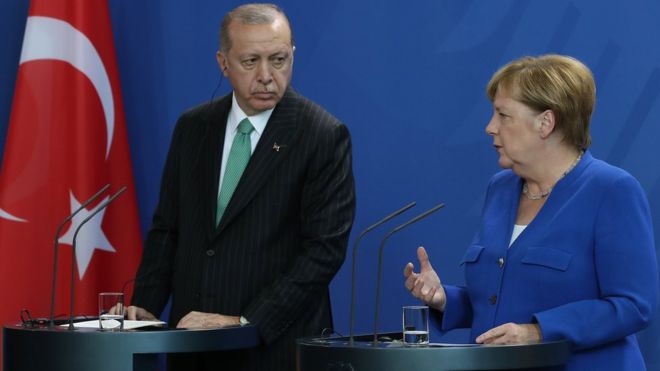BERLIN — One might have thought the Queen were coming, what with all the media coverage, the background reports and the talk shows, the editorials and interviews. For well over a week before Turkish President Recep Tayyip Erdogan landed in Berlin for a three-day state visit, the event dominated the political debate.
Would he or wouldn’t he? Should we or shouldn’t we? Erdogan had made himself a black sheep in Germany, after having accused Chancellor Angela Merkel of reviving Nazi methods, when his bid to bring his political campaign to Turks in Germany was blocked; or, when he damned Berlin for harboring terrorists, because opposition figures from his country sought and found political asylum here. Would he continue the tirades while on an official visit? Or would he behave, and try to rebuild bridges, perhaps in hopes of organizing support for his ailing national economy?
And how should we respond? the Germans asked themselves and their political leaders. Should we shake hands with this autocratic tyrant who has jailed thousands of political opponents (including German citizens), who in Orwellian news-speak he has qualified as coup plotters, terrorists and traitors? Better perhaps to sacrifice diplomatic niceties and take a principled stand against this would-be dictator than grant him the status of legitimacy?
Such was (in brief and with a touch of exaggeration) the tenor of the debate that unfolded on the German political stage in September. Erdogan was coming for a three-day visit and nobody knew quite what would happen, or what to do.
Dialogue or Diatribe?
High on the agenda were two meetings with Chancellor Angela Merkel, which were supposed to contribute to overcoming the crisis in bilateral relations.








